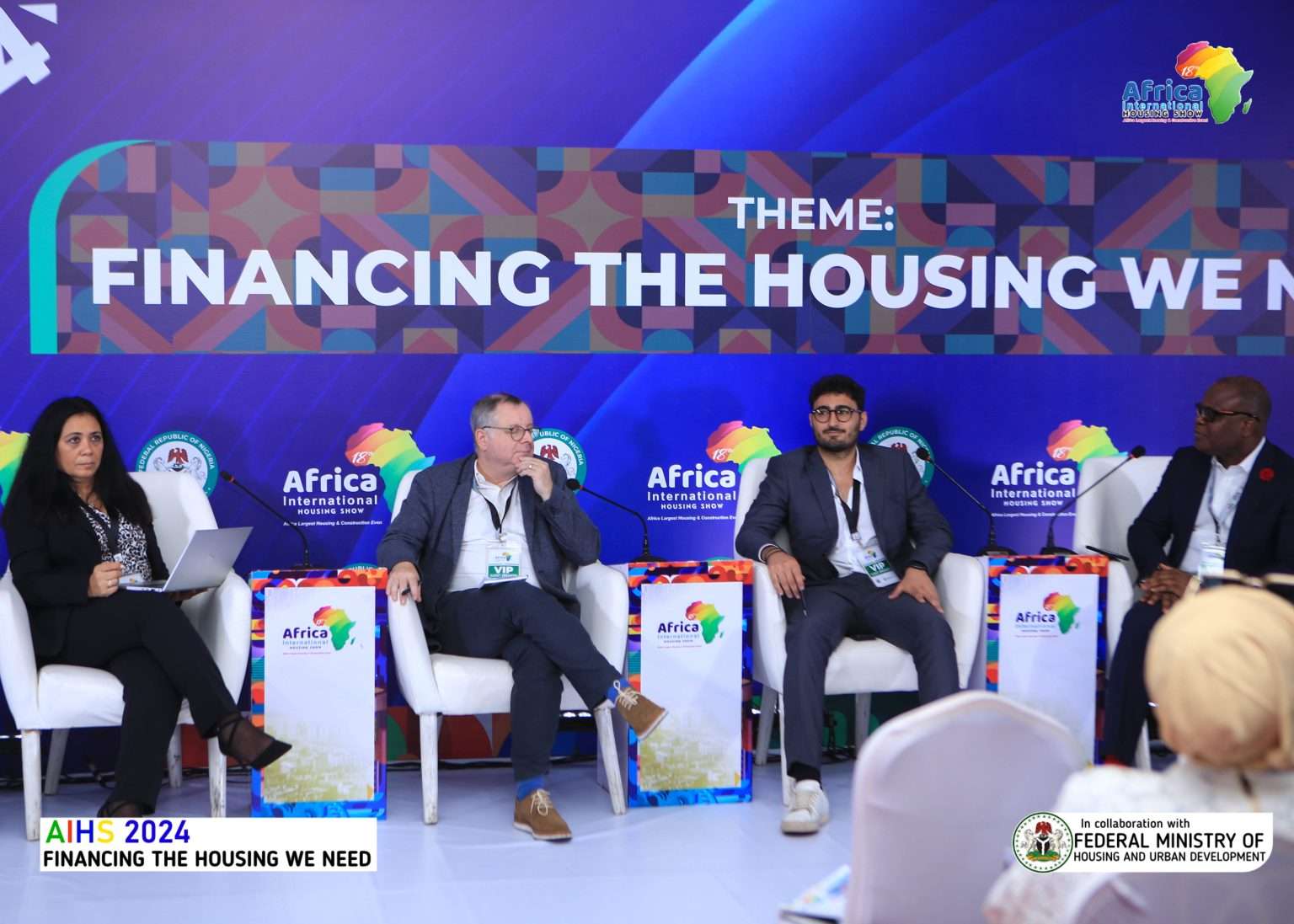At the first plenary session at the African International Housing Show (AIHS), a week-long housing program bringing solutions to housing challenges held in collaboration with the Federal Ministry of Housing and Urban Development, there was a collective resolve of stakeholders to forge a path toward sustainable housing solutions.
By fostering partnerships, embracing technology, and prioritizing resilience, the housing sector in Africa stands poised to make significant strides in addressing its infrastructure challenges.
The insights shared during the session underscore a commitment to building a future where sustainable and resilient housing is accessible to all. The 18th AIHS gathered key stakeholders, government bodies, and private sector leaders in the housing industry. This premier event, known as the largest housing platform in Africa, seeks to address the continent’s pressing housing challenges.
READ ALSO: Governor Buni of Yobe State, Other Dignitaries to Grace Africa Housing Awards 2022
The plenary session, titled “The Housing We Need: Building Resilient & Sustainable Infrastructure,” provided a fertile ground for robust discussions on innovative solutions to housing issues.
Moderated by a Partner and Head of Infrastructure, Government & Healthcare at KPMG, Dimeji Salaudeen, the session featured notable industry leaders who shared their insights and strategies for fostering sustainable infrastructure.
Rudha Sultan, Sector Director for Infrastructure at the UK Department for Business and Trade Africa, commenced the discourse with an overview of the African network for her department. She highlighted their successful partnerships across the continent and emphasized their readiness to bring these experiences to the Nigerian market. According to Sultan, the network trains companies to navigate and secure projects in the infrastructure export supply services sector. She underscored the importance of adopting a sustainable infrastructure approach, which involves sharing UK expertise and employing a range of partnership models, including government-to-government collaborations.
READ ALSO: Why Africa International Housing Show (AIHS) will Move to a Bigger Venue in 2024
Sultan also touched on critical issues such as addressing the housing deficit and integrating climate change considerations into infrastructure design. She stressed the need to mobilize private investment and leverage technology transfer to develop resilient housing solutions.
Phil Dorwick, Director for International Development at Atkins Réalis, added another layer to the discussion by focusing on the design and structure of sustainable and resilient infrastructure.
He asserted that building designs must incorporate local content and be resilient enough to withstand pandemics and climate change. Dorwick emphasized the necessity for infrastructure to remain functional under varying conditions and highlighted the role of investors in ensuring that resilience and sustainability plans are embedded in lending processes.
The discussions further delved into ensuring the bankability of projects by adhering to international standards in technical designs. These standards encompass health, social, and environmental considerations, ensuring that projects meet global benchmarks and respect the cultural contexts of the communities they serve. Unlocking financing, therefore, becomes feasible when these elements are meticulously integrated into project planning and execution.




